 1973 saw many oil producing countries become independent and nationalise their oil. Some succeeded and others, like Australia, were brought to heal. Ever since 1973, the US and Europe have been trying to reverse these nationalisations. Venezuela is a case in point.
1973 saw many oil producing countries become independent and nationalise their oil. Some succeeded and others, like Australia, were brought to heal. Ever since 1973, the US and Europe have been trying to reverse these nationalisations. Venezuela is a case in point.
In a gesture befitting Lewis Carol's Queen of Hearts, the United States has suddenly abandoned all pretences of lawful procedure and common sense by officially declaring that opposition leader, Juan Guaidó is the real president of Venezuela, not Nicolás Maduro Moros, who was actually elected President by Venezuelans.
To put things in perspective: Getting rid of President Maduro because the 2015 parliamentary election placed his own party in the minority would be like making President Trump step down because the Democrats are now in the majority in Congress - to paraphrase Venezuela's diplomat to Russia.[Article by Sheila Newman with James Sinnamon]
It is also baffling to see French President Macron call for Maduro to step down when his own country is convulsing with Gilets jaunes (Yellow Vest) protests, who all call for Macron to step down. Don't politicians have any sense of irony?
Interesting also to see Turkish President Erdogan stick up for Maduro by saying nothing can be resolved democratically without an election.
Meanwhile South America: Columbia, Brazil, Chile, are also baying for Maduro to step down, as you would expect of US lackies.
Why should Maduro step down?
Why should Maduro step down? Why is no-one talking about how US trade sanctions have impoverished Venezuela? The reason for these sanctions is that the US wants control over Venezuelan oil, which means that it must destroy the socialist government that nationalised oil. Will they go so far as to invade and bomb Venezuela like the did other oil-producers whose leaders they condemned, like Iraq, Libya, and Syria?
With the help of much money poured into Venezuela by the US Government agencies the United States government have succeeded in doing to Venezuela what they did to Ukraine in 2014 when Victoria Nuland promised the Maidan protesters face-to-face $5 billion to assist in "building democracy".
A propos of the US interference on Russia’s doorstep in Ukraine (and Georgia and the Middle East), there is symmetrical justice in Russia's plans to build a military base in Venezuela, although these may also have caused a panic in the US leading to this overt coup-attempt.
In Latin America, only Cuba, Bolivia and Mexico have defended Maduro. Mexican president, Lopez Obrador, said that Mexico has returned to the non-intervention policy Mexico practiced from the 1960s — when it resisted U.S. pressure to condemn or isolate Cuba — until 2000, when the conservative National Action Party began to adopt a more activist, U.S.-allied stance in foreign affairs. Russia, China, India and South Africa buy oil from Venezuela and are generally sympathetic or have a policy of non-interventionism.
The EU has called for new elections, but without condemning the United States meddling in Venezuela. This further reinforces the narrative or the claim that the democratically elected President Maduro is illegitimate. If new elections were called, in the current geopolitical circumstances, this would result in the ousting of President Maduro in an election rigged with many millions of United States dollars and with thousands of clandestine US intelligence agency operatives. The elections would also be conducted under the guns of the US Navy, Army, Air Force and Marine Corps in the Central American Carribean and neighboring countries on the South American continent.
This has all happened before ...
This has all happened before, but unofficially and more covertly: In 2002, a group marched on the Presidential palace demanding Hugo Chávez’s resignation, which the President refused. He was arrested and imprisoned. Pedro Carmona, President of the Venezuelan Chamber of Commerce, which receives funding from the US National Endowment for Democracy (a right-wing regime-change NGO that calls economic liberalism 'democracy'), was installed as Venezuelan President on the 11th of April 2002. On the 12th of April, the US President’s spokesman, Ari Fleischer, endorsed the Carmona government. But, on the 13th of April the Presidential guard and the army arrested Carmona. Next the opposition collected signatures from 20 per cent of the electorate required under Chávez’s constitution to initiate a referendum to sack the president, but Chávez won the referendum.
... and with the same excuses
The oil countershock of 1979 culminated in currency devaluation by one third and a change to a the Social Christians (SC) government, which remained in power until 1983, when Democratic Action (DA) or Acción Democrática, (AD) in Spanish, was returned under Jaime Lusinchi. Despite promises to diversify the economy and deliver on housing, public health and education, the situation continued to deteriorate. That is, the kind of government that the US wants to install, one that will privatise Venezuelan oil, failed to develop and diversify the economy, leaving it almost exclusively oil-dependent, with most of its population in poverty.
Hugo Chavez and Maduro were later both accused of causing this same problem of lack of economic diversification.In 2019, President Trump and Vice President Mike Pence were using it again as an excuse to rattle sabres and unilaterally denounce President Maduro and, bizarrely, recognise Juan Guaidó as the interim president of Venezuela.
Back to our history: Under Jaime Lusinchi and Acción Democrática, (AD), the Venezuelan economy was simply being mined by foreign interests, with no consideration for the self-determination of its population. In 1988 another DA president, Carlos Andrés Pérez, introduced an austerity regime, removing subsidies on gasoline as well as on a number of important consumables, culminating in hunger riots in Caracas, with a death toll of thousands.
Two attempted military coups took place against a background of continued repression in 1992 and Hugo Chávez led one of them. President Pérez later went to prison for 28 months with the government limping along under another recycled leader, Caldera, whose foreign policy was very USA friendly. In 1995, 103 per cent inflation hit the Venezuelan middle class. In 1997 doctors, university professors, and national telephone company workers went on strike. In December 1998 Hugo Chávez won the Presidency.
Hugo Chávez, the 45th President of Venezuela, died on 5 March 2013 at the age of 58. His death triggered a presidential election which was constitutionally required to be called within 30 days. Nicolás Maduro served as interim president following Chávez's death until 14 April, because the Vice President did not want to take charge of the country as Chávez had nominated Nicolas Maduro as a successor.
Juan Guaidó's Popular Will Party (Voluntad Popular)
The Popular Will party came out of the Popular Will Movement, which was formed in 2009 by the usual suspects, including Democratic Action, the right-wing US business-backed party that had privatised oil.
The Democratic Unity Roundtable (Mesa de la Unidad Democrática (MUD) is a coalition of parties, notably Democratic Action, which formed in 2010 in opposition to Hugo Chavez's United Socialist Party of Venezuela.
Popular Will is supporting Juan Guaidó's Presidential Coup attempt.
Venezuela is situated at the very north of the South American continent on the southern shore of the Caribbean Sea. Venezuela is less than 2,000 kilometres south of the southern most tip of the United States, from which, since 1945, many wars against humanity have been launched since 1945. The sum total of deaths from these wars is in the millions.
Throughout Central America, the Carribbean and the South American continent are scattered a large number of United States' military bases from which further wars against Venezuela and other sovereign Latin American countries can be launched. Clearly any national government which wishes to govern in the interests of its people and not according to the dictates of the Unite States' elites, risks attracting US intervention to transform it into a client state, with a liberal economic economy, entailing debt and privatisations.
Venezuela, Chavez, Maduro & Latin-American oil on the world stage
This part of the article is adapted from Sheila Newman, “Venezuela, Chavez & Latin-American oil on the world stage”, Chapter 10 in Sheila Newman (Ed.) The Final Energy Crisis, Second Edition, Pluto Press,2008.[1]
“In 1998, or 168 years after independence, a tiny wealthy elite was separated by a vast chasm from the rest of the people, of whom one quarter were unemployed. This seems disgusting when you realize that Venezuela was then the second biggest [oil] exporter in the world and had received around 300 billion dollars in oil sales – or the equivalent of 20 Marshall Plans - over the preceding 25 years. It was in this context that Hugo Chávez and his social plan won the elections of 6 December 1998 with 56.24% of the votes.” [2] (Nicolas Lehoucq, Paris Institute for International Studies).
President Hugo Chávez, was a social revolutionary with a giant budget. In 2006 the EIA ranked Venezuela ninth in World Oil producers and sixth in World Oil Exporters. [3] For many of his countrymen, Chávez was seen as a towering figure of hope for rescue from a nightmare which began in 1498. But his Anglo critics portrayed him as an ogre treading clumsily over political alliances and destroying Venezuela’s oil-assets.[4]
Clearly Venezuela was pursuing a different political paradigm from that of the North American-led Anglophone countries. The Chávez government endorsed a Christian socialist philosophy directly opposite to the Protestant capitalist one of a wealthy elite divinely elected on earth. In the Chávez philosophy, Christ was the first socialist, sharing wealth among the poor; a rich man might only enter heaven by giving away his possessions to the poor; a good leader should give everything to his country.[5]
One political explanation for this difference is that Latin America ‘missed out’ on the progress model which dominates North America because, colonized by medieval Catholics, it was isolated from the development of Protestantism.[6]
Sociologist, Max Weber, theorized in The Protestant Ethic and the Spirit of Capitalism (1906) that Calvinism was the midwife of capitalism, delivering to the world the concepts of the ‘work ethic’ and of election to earthly prosperity as a reflection of God’s grace.
The work of Australian engineer and social analyst, Sharon Beder, supports a contrary view that the work ethic plus the progress model are driving the world over a cliff[7] and this is pretty much Chávez’s expressed view. Chávez also apparently shares a similar perspective to Al Gore’s on global warming, but that is where the similarities end.
From the 15th C the indigenous long-term stable clan and tribal populations of Chávez’s people were ravaged by invasion, immigration, disease, dispossession and slavery. The original peoples nearly died out, then, completely disorganized, ballooned in circumstances where child labour was the only source of additional income for low-wage landless people.[8] What is now called Venezuela contained a stable population estimated at around 400,000 Amerindians in 1498.[9] (In 2018 the population was over 28 million.) In the early 16th C King Charles Martel V granted Welsers German banking firm rights to exploit the people and resources of Venezuela in payment of a debt. The colony returned to the Spanish Crown within 20 years and hereditary land grants were made to conquistadores for a time, but later declared illegal. Meanwhile the Amerindians fought back until smallpox overwhelmed most of them in 1580.[10] Not until 1821 did Simón Bolívar win the long indigenous struggle for independence.[11]
In 1921 the discovery of oil permitted agricultural and industrial development. At the start of the Second World War Venezuela’s oil production was only exceeded by that of the United States. Much of the oil concession development involved attracted US, British, and Dutch companies. There was a period of dictatorship from 1948-1958, when Venezuela again became a democracy. It founded OPEC in 1960.[12]
The historic inequities of colonial land distribution[13] guaranteed a large population of impoverished rural labourers. As oil prices waxed and waned, productive agricultural holdings were neglected and waves of poor people left the country regions to look for work in the city, creating the slum of Caracas. Between 1959 and 1964 the government redistributed rural land to 150,000 families but many resold the land to speculators, it is said, because they had little education about farming and no ready market for their product.[14] Other wealth redistribution and educative policies were carried out but these programs failed to establish themselves against a background of depressed commodity prices and political schism. Although the Democratic Action Party (DA) had played an important role in Venezuela’s first democratic period (1945-1948), in the early 1960s it was aligned with the USA, although many Venezuelans were sympathetic to the Castro regime in Cuba, which was charged with supplying arms to guerrillas in 1963.[15] The DA government became increasingly repressive in the context of continued political unrest. In 1968 the Social Christians (SC) won government and remained in power until 1973.[16]
In the wave of nationalizations following the first oil-shock, despite its US sympathies, the DA Government created the State-run oil and natural gas company, Petroleos de Venezuela SA (PdVSA) in 1975-1976. PdVSA is Venezuela’s largest employer and provides 80 per cent of export earnings but, reflecting later trends to privatization, government revenue declined from 70.6 per cent in 1981 to 38 per cent in 2000.[17]
The oil countershock of 1979 culminated in currency devaluation by one third and a change to an SC government, which remained in power until 1983, when AD was returned under Jaime Lusinchi. Despite promises to diversify the economy and deliver on housing, public health and education, the situation continued to deteriorate.
Hugo Chavez and Maduro were later both accused of causing this same problem of lack of economic diversification. In 2019, President Trump and Vice President Mike Pence were using it again as an excuse to rattle sabres and unilaterally denounce President Maduro and, bizarrely, recognise Juan Guaidó as the interim president of Venezuela.
In 1988 another AD president, Carlos Andrés Pérez, introduced an austerity regime, removing subsidies on gasoline as well as on a number of important consumables, culminating in hunger riots in Caracas, with a death toll of thousands.
Two attempted military coups took place against a background of continued repression in 1992 and Hugo Chávez led one of them. President Pérez later went to prison for 28 months with the government limping along under another recycled leader, Caldera, whose foreign policy was very USA friendly. In 1995, 103 per cent inflation hit the Venezuelan middle class. In 1997 doctors, university professors, and national telephone company workers went on strike. In December 1998 Hugo Chávez won the Presidency.
On 30 December 1999 Venezuela’s 26th constitution was approved by 71 per cent of votes. The Senate was replaced by a single chamber National Assembly, and the Bolivarian Republic of Venezuela came into being, named after the National hero. Presidential terms increased from five to six years and limitations on presidents serving a second consecutive term were lifted, but it became possible for the public to sack a president through a publicly initiated referendum. Privatisation of the oil industry, social security, health care and other major state-owned sectors was outlawed.[18]
According to the EIA, “Nearly one-half of PdVSA’s employees walked off the job on December 2, 2002 in protest against the rule of President Chávez.”[19] But another report says that they were prevented from working in a ‘bosses lock-out’ where “a small group of managers, directors, supervisors and technicians organised the sabotage of production and brought the industry almost to a halt,” and Georgetown politics Professor commented that “The opposition (…) has also been extremely irresponsible in trying to demand [Chávez’s] resignation rather than trying to seek an electoral solution.”[20] If we assume that PdVSA management was responsible for the declining returns to the State by PdVSA over the decades, then the view that this was a ‘lock-out’ to preserve an undemocratic status-quo by discrediting the Chávez Government, seems persuasive. Chávez had provoked US insecurity about oil supply by criticizing the Free Trade of the Americas Act (FTAA) and US foreign policy. The Chávez government had sacked some directors of PdVSA who were in political disagreement with the Venezuelan executive. These people then led calls for a general strike along with a variety of opposition parties and the Fedcamaras (Venezuelan Chamber of Commerce), who are supported by the US National Endowment for Democracy. A group marched on the Presidential palace demanding Chávez’s resignation, which the President refused. He was arrested and imprisoned. Pedro Carmona, President of the Venezuelan Chamber of Commerce, which receives funding from the US National Endowment for Democracy, was installed as Venezuelan President on the 11th of April. On the 12th of April, the US President’s spokesman, Ari Fleischer, endorsed the Carmona government. But, on the 13th of April the Presidential guard and the army arrested Carmona. Next the opposition collected signatures from 20 per cent of the electorate required under Chávez’s constitution to initiate a referendum to sack the president, but Chávez won the referendum.[21]
The distribution of PdVSA income had been increasingly diverted to private concerns, with returns to the State falling from 70.6 per cent in 1981 to 38.6 per cent in 2000. Despite permanent damage to production from sabotage in the industrial disputes of December 2002, Chávez’s intervention had raised PdVSA returns to the state from 38.6 per cent to 50 per cent by 2004.[22]
Venezuela had for some time been a food importer, due to the country’s very poor system of land management, which Chávez tried to rectify in a major scheme. He seemed to be seeking regional self-sufficiency, with protection for local production. He was opposed to overconsumption, openly warning about oil depletion. He was highly critical of US human rights abuses, at home and abroad, and opposed free-marketism.
Obviously Chávez’s regime threatened many established interests in a seething international struggle for resource hegemony. The economy was still in recession and maintenance and consolidation of the section of the population which supported Chávez would require that he carry out his promises. Chávez’s friendship with Castro was a source of survival skills. So was his policy of strengthening regional Hispanic alliances.
There were a number of likely candidates, including Mexico, which had begun to import food from the US under the American ‘free trade’ agreement. Brazil, however, sensibly seeking independence from petroleum, was apparently counselled to drop its independence policies in exchange for leniency on international debt.[23]
Chávez actively sought more diversification in petroleum trading, initiating a ‘South-South diplomacy’ with sidelined and emerging polities in controversial and political oil-trade accords with Cuba, Argentina, Uruguay, Brazil, Spain, Iran, Libya, Nigeria, Qatar, India, China and Russia.[24] An agreement in October 2004 meant that Russian oil sales to the US were actually honoured by Venezuelan oil and Venezuelan sales to Europe were supplied by Russian oil. The Chávez government paid off $538m of Argentinian debt and agreed to provide contracts worth $500 m to Argentina.
In a fascinating avoidance of petrodollars, Chávez supplied 80,000 barrels of oil to Cuba a day, at a friendly price, with 20 per cent of payment in the form of the supply of 150,000 Cuban doctors to Venezuelan health.[25]
Most importantly, Chávez hoped to create a Latin American petroleum company, “Petrosur”, which would unite the public companies of Argentina, Bolivia, Brazil, Uruguay, Equator and Venezuela.
Mostly anglo-analysts intimated that anglo-oil companies would not touch Venezuela because of Chávez, and that the bitumus deposits of the Orinoco would not get developed, through lack of experts. But this began to look like sour grapes as plenty of the non-anglo oil companies – Russian LUKoil, China’s CNPC, Indian ONGC and Brazil’s Petrobas – did not seem to be put off.
Chávez did not neglect regional diplomacy among the underworld of arms trade and revolutionary militia.[27] And, after an attempted putsch in 2002, Chávez relied on Cuban Intelligence for personal protection. Not surprisingly the US Government disapproved.
On December 4, 2006, Chávez won his third six year term as president. In 2007 a referendum to make Chávez president for life was democratically defeated by 51 per cent.[28]
In the light of Venezuelan social and economic performance in the decades preceding Chávez it would have been hard for him to do worse than his predecessors and he seemed to be doing considerably better. Land redistribution is the basis of revolution and of social equity.[29] Venezuela signed an accord to give effective rights to its indigenous peoples.[30] Chávez allocated public and then private land to the landless in a program accompanied by massive agricultural education. [31] This was bound to upset the small elite of land-owners and speculators.
The Chávez government had better green credentials than any other petroleum producer. With an active commitment to mitigate the impacts of climate change and peak oil, it initiated new public transport, instituted organic farming as an important part of secondary school education, and facilitated a huge organic farm in the centre of Caracas. It also planned massive reforestation with the collection of 30 tonnes of seeds, and the planting of 100 million plants. [32]
The overwhelming positive signs of Chávez's example seemed to be what we needed for the 21st century.
In about 2010, the United States added to its traditional political harassment economic sanctions against Venezuela. The 2016 low oil-price agreement between Saudi Arabia and the United States then caused a huge reduction in Venezuela’s oil income. This massively depressed GDP and made it very hard for people to buy food and necessities.
In March 2013 Hugo Chavez died of cancer. He had nominated his successor as Maduro. Maduro ran for election and was elected President.
Unfortunately the United States stepped up its sanctions, making it even harder for Venezuela to operate. In the name of fighting communism and pretending it was motivated by humanitarian concerns, President Trump and Vice-President Pence spoke of regime-change overtly for the first time. Bizarrely, they ‘recognised’ the opposition leader as the true president, despite massive protests from Venezuelans.
NOTES
[1] Various documents named beneath, many of which have also referred to Venezuelan President Hugo Chávez’s speech at the 60th General Assembly of the United Nations in New York, on 15 September 2005.
[2] Lehoucq. (Translated here by S.M. Newman.)
[3] (All hydrocarbon liquids) http://www.eia.doe.gov/emeu/cabs/topworldtables1_2.htm
[4] For instance, the Economist unreasonably ignores the poverty of Venezuelan people under the old management of oil in a one-sided interpretation of events in “Oil's Dark Secret,” Aug 11 2006, Economist Intelligence Unit - Executive Briefing, http://www.economist.com/business/PrinterFriendly.cfm?story_id=7270301
[5] Lehoucq.
[6] In The Pan-American Dream, US conservative writer, Lawrence Harrison, attempts to explain the differences in economy, government, human rights and standard of living in American Hispanic societies according to Weberian theory.
[7] Articles by Sharon Beder on the Work Ethic. http://homepage.mac.com/herinst/sbeder/home.html#work.
[8] UNICEF estimated that 9.9 percent of children ages 5 to 14 years in Venezuela were working in the year 2000. Government of Venezuela, Multiple Indicator Cluster Survey (MICS): Standard Tables for Venezuela and Annex I: Indicators for Monitoring Progress at End-Decade, UNICEF, 2000, www.childinfo.org/MICS2/newreports/venezuela/venezuela.htm and http://www.childinfo.org/MICS2/EDind/exdanx1.pdf.
Doepke hypothesised that fertility falls where policies, such as education subsidies and restrictions on child labour affect the opportunity cost of education. The populations of South Korea and Brazil had begun to grow rapidly around the same time, but South Korea had an effective public education system, and strongly enforced child-labour restrictions, whereas Brazil had a weak public education system and poorly enforced anti-child-labour laws. Doepke, M., Growth and Fertility in the Long Run, Mimeo, University of Chicago, 2000. available in reduced form in Doepke, M. "Accounting for Fertility Decline During the Transition to Growth", Journal of Economic Growth, 9(3), 347-383, September 2004.
[9] http://www.nationsencyclopedia.com/Americas/Venezuela-HISTORY.html
[10] Ibid.
[11] Ibid
[12] http://news.bbc.co.uk/2/hi/business/2549589.stm
[13] www.forestpeoples.org/documents/conservation/Ven10c_jan04_ch6_eng.pdf
[14] Seth DeLong, “Venezuela's Agrarian Land Reform: More like Lincoln than Lenin”, COHA, February 25th 2005, http://www.venezuelanalysis.com/analysis/963
[15] http://www.nationsencyclopedia.com/Americas/Venezuela-HISTORY.html
[16] Ibid.
[17] Ibid and Lehoucq, Nicolas, “La redéfinition du rôle géopolitique Vénézuelien,” Institut d'étude des Relations Internationales Paris, www.memoireonline.com/11/06/287/m_redefinition-role-geopolitique-venezuelien0.html (accessed 21/9/2007) and Doizy, Arnaud, “La politique étrangère des Etats-Unis au Venezuela, la période Chavez (1999- 2007)” Université Panthéon-Assas paris II, http://www.memoireonline.com/06/07/491/m_politique-etrangere-etats-unis-venezuela-periode-chavez2.html (Accessed 22/9/07)
[18] www.nationsencyclopedia.com/Americas/Venezuela-HISTORY.html
[19] “Nearly one-half of PdVSA’s employees walked off the job on December 2, 2002 in protest against the rule of President Chavez.” EIA Reports : www.eia.doe.gov/emeu/cabs/Venezuela/Oil.html Some other anti-Chávez sources: http://marketplace.publicradio.org/display/web/2007/09/13/venezuelan_oil_expats_resurfacing/ Some comments on US stance:
Professor of Politics, Georgetown University, Arturo Valenzuela commented on the PBS Jim Lehrer Newshour, “Troubled Nation”, December 17, 2002, “…Unfortunately, the radicals on both sides are maintaining this conflict. The opposition, for example, in my view, has also been extremely irresponsible in trying to demand his resignation rather than trying to seek an electoral solution. In fact, the constitution as I said earlier does make it possible for to Chávez be submitted to a referendum in August of next year. It seems unreasonable not to focus on that. Chávez has said he would accept that as a possible outcome. The problem is that the opposition wants him out now. Chávez says I don't want to leave and the situation is getting worse day by day.” http://www.pbs.org/newshour/bb/latin_america/july-dec02/venezuela_12-17.htm
[20] Martin, Jorge, “Venezuela: Opposition "strike" or bosses lock out? An eyewitness account,” www.marxist.com/Latinam/venezuela_eyewitness0103.html. Some other sources: www.thirdworldtraveler.com/South_America/Venez_Coup_Countercoup.html
[21] Doizy, Arnaud, « La politique étrangère des Etats-Unis au Venezuela, la période Chavez (1999- 2007)» Université Panthéon-Assas paris II, www.memoireonline.com/06/07/491/m_politique-etrangere-etats-unis-venezuela-periode-chavez2.html
[22] Lehoucq, op.cit.
[23] It relies on uncompressed gas but also, unfortunately, on bio-fuels which will lead to tragic soil and forest destruction. Nicolas Lehoucq writes that Brasil had achieved a ‘quasi-independence from petroleum’ in the 1990s and has even developed cars which the driver can select to function by a simple switch from gasoline to non-liquefied gas to ethanol. “But this innovatory system was threatened by the World Bank. President Lula was attempting to obtain a partial cancellation of Brazil’s debt and the World Bank attempted to negotiate a deal whereby Brazil would cease its petroleum indendence program.” Lehoucq remarks that the World Bank is US dominated and wonders if the US uses petroleum as a means of control of third world countries. Lehoucq, op.cit.
[24] Lehoucq, op.cit.
[25] Lehoucq, op.cit.
[26] Cohen, D., “Venezuela -- Aló Presidente!”, ASPO USA publication, 29 August 2007 http://www.aspo-usa.com/index.php?option=com_content&task=view&id=202&Itemid=91]
[27] Lehoucq, op.cit.
[28] “Hugo Chavez's annus horribilis,” M&C, Americas news, Dec 14, 2007.
http://news.monstersandcritics.com/americas/news/article_1380925.php/YEARENDER_Hugo_Chavezs_annus_horribilis
[29] A fact strangely overlooked in many studies of the French Revolution, where analysis of methods undertaken for the redistribution of land, affords a remarkable perspective.
[30] As with Australia’s terra nullius, no treaty had ever been undertaken with the indigenous people. Source: The Forest Peoples’ Program, “Protecting and encouraging customary use of biological resources: The Upper Caura, Venezuela,” www.forestpeoples.org/documents/conservation/Ven10c_jan04_ch6_eng.pdf
[31] Seth DeLong, “Venezuela's Agrarian Land Reform: More like Lincoln than Lenin,”
February 25th 2005, COHA, https://www.venezuelanalysis.com/analysis/963
[32] Derek Wall, “Viva Venezuela verde!” http://commentisfree.guardian.co.uk/derek_wall/2007/04/viva_verde_venezuela.html and Eva Golinger, “Venezuela’s Green Agenda: Chavez Should Be Named The ‘Environmental President’”, February 27th 2007, Venezuelanalysis.com venezuelanalysis.com/analysis/2244 (Accessed 22 Sept 2007)
 This article looks at the Gaza Marine gas field, a modest 1.1–1.4 trillion cubic feet reserve off Gaza’s coast, often dismissed as too small to fuel conflict between Israel and Palestinians. Yet, its shallow depth, ease of exploitation, and potential to yield $2.4 billion for Gaza’s economy make it a strategic prize, as evidenced by Israel and Egypt’s 2023 development plans sidelining Gazans.
This article looks at the Gaza Marine gas field, a modest 1.1–1.4 trillion cubic feet reserve off Gaza’s coast, often dismissed as too small to fuel conflict between Israel and Palestinians. Yet, its shallow depth, ease of exploitation, and potential to yield $2.4 billion for Gaza’s economy make it a strategic prize, as evidenced by Israel and Egypt’s 2023 development plans sidelining Gazans.
 Hersh, one of the most famous and respected journalists in the world, has just published an investigative report showing that the United States, in cahoots with Norway, conspired and executed the destruction of Nordstream2. The United States, Norway (and investors in Norway petroleum) were the obvious immediate beneficiaries. See Seymour Hirsh, "How America Took Out The Nord Stream Pipeline," Substack News (8 Feb 2023)
Hersh, one of the most famous and respected journalists in the world, has just published an investigative report showing that the United States, in cahoots with Norway, conspired and executed the destruction of Nordstream2. The United States, Norway (and investors in Norway petroleum) were the obvious immediate beneficiaries. See Seymour Hirsh, "How America Took Out The Nord Stream Pipeline," Substack News (8 Feb 2023) 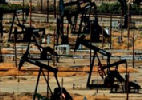
 "The advantage that oil distillates have is that the energy density (energy content/unit volume) of oil distillates is much greater than electric batteries and that advantage still exists. To reduce that disadvantage, auto makers now put as many battery cells in series as they can. Modern electric vehicles have the whole bottom of the vehicle covered with electric battery cells. Many electric vehicles now have a rated range of +300 miles.
"The advantage that oil distillates have is that the energy density (energy content/unit volume) of oil distillates is much greater than electric batteries and that advantage still exists. To reduce that disadvantage, auto makers now put as many battery cells in series as they can. Modern electric vehicles have the whole bottom of the vehicle covered with electric battery cells. Many electric vehicles now have a rated range of +300 miles. The Electrical Trades Union is calling for an independent review of the entire National Electricity Market (NEM) following the Australian Energy Market Operator’s (AEMO) unprecedented decision to take over national energy supplies. AEMO has announced it will set administered prices for wholesale power in all regions of the market and take control of all generation plants to ensure the lights don’t go out for businesses and households.
The Electrical Trades Union is calling for an independent review of the entire National Electricity Market (NEM) following the Australian Energy Market Operator’s (AEMO) unprecedented decision to take over national energy supplies. AEMO has announced it will set administered prices for wholesale power in all regions of the market and take control of all generation plants to ensure the lights don’t go out for businesses and households.  I have just learned, regretfully, of the death of Jay Hanson. My first report was that it occurred in a diving accident. Subsequently it has been clarified that he fell ill after diving, and died that night. Jay Hanson lived in Hawaii. He was the founder of multiple energy resources or peak oil lists from the 1990s, starting with the incredibly popular Dieoff website and DieOff list which looked at peak oil, population numbers, and scarcity. An intermediate list was Killer Ape-Peak Oil. The last list of which we are aware was [America2Point0] which Hanson closed 'until further notice' on 20 December 2016. Hanson was teetotal for many years and studied evolutionary psychology. He believed that humans would be ultimately unable to deal with resource scarcity or human induced climate change because they could not cope with major environmental and evolutionary problems involving themselves.
I have just learned, regretfully, of the death of Jay Hanson. My first report was that it occurred in a diving accident. Subsequently it has been clarified that he fell ill after diving, and died that night. Jay Hanson lived in Hawaii. He was the founder of multiple energy resources or peak oil lists from the 1990s, starting with the incredibly popular Dieoff website and DieOff list which looked at peak oil, population numbers, and scarcity. An intermediate list was Killer Ape-Peak Oil. The last list of which we are aware was [America2Point0] which Hanson closed 'until further notice' on 20 December 2016. Hanson was teetotal for many years and studied evolutionary psychology. He believed that humans would be ultimately unable to deal with resource scarcity or human induced climate change because they could not cope with major environmental and evolutionary problems involving themselves. 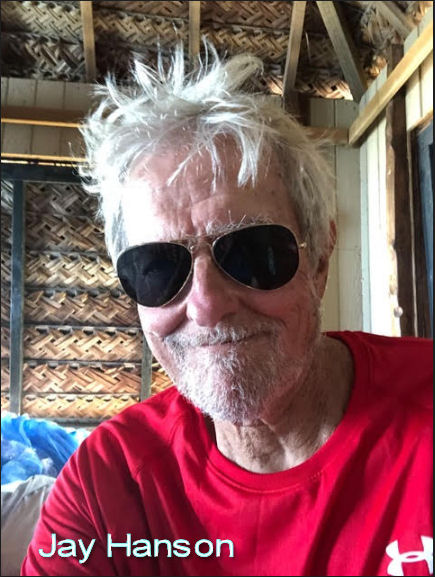

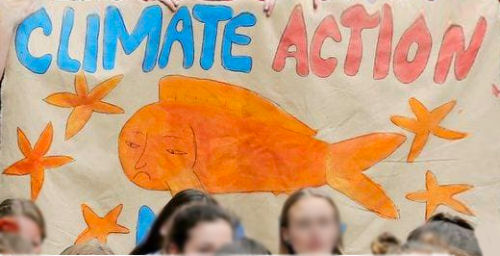
 In this 1973 video, the Club of Rome envision a world with far less need to work long hours and with a benign system of international cooperation. I think that they would be horrified if they could see what has actually happened, and the role that the IMF has taken. I think the Club of Rome got the material settings right, though.
In this 1973 video, the Club of Rome envision a world with far less need to work long hours and with a benign system of international cooperation. I think that they would be horrified if they could see what has actually happened, and the role that the IMF has taken. I think the Club of Rome got the material settings right, though.
 1973 saw many oil producing countries become independent and nationalise their oil. Some succeeded and others, like Australia, were brought to heal. Ever since 1973, the US and Europe have been trying to reverse these nationalisations. Venezuela is a case in point.
1973 saw many oil producing countries become independent and nationalise their oil. Some succeeded and others, like Australia, were brought to heal. Ever since 1973, the US and Europe have been trying to reverse these nationalisations. Venezuela is a case in point.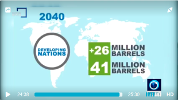 This program from Press tv Iran is interesting and useful in bringing us up to date. Iranians know a thing or two about oil production and the oil market. The issues of peak demand and peak production are very hard to estimate and no-one here pretends to have the answers, but a number of factors are canvassed, including US President Trump. As usual, however, in such programs, population growth and economic growth are skirted around. Similarly, increasing efficiency among OECD countries is taken as a given, and increasing consumption among 'developing' countries is also taken as a given. The elephant in the room is, of course, when does peak demand meet peak production.
This program from Press tv Iran is interesting and useful in bringing us up to date. Iranians know a thing or two about oil production and the oil market. The issues of peak demand and peak production are very hard to estimate and no-one here pretends to have the answers, but a number of factors are canvassed, including US President Trump. As usual, however, in such programs, population growth and economic growth are skirted around. Similarly, increasing efficiency among OECD countries is taken as a given, and increasing consumption among 'developing' countries is also taken as a given. The elephant in the room is, of course, when does peak demand meet peak production. 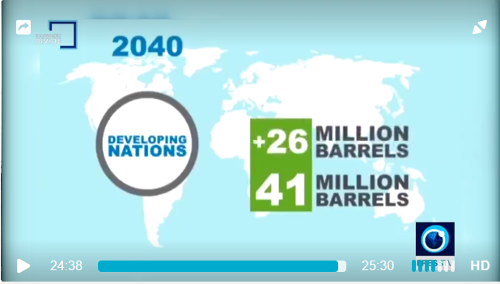
 Recently Donald Trump accused Germany of being dangerously dependent on fuel imported from Russia. The Russian foreign minister has responded to this sally by pointing out that Germany is still occupied militarily by the United States Army. As for importing fuel from Russia, Germany has done so for over 50 years, reliably, without interruption due to political differences. Trump wants to sell fracked fuel from the US to Germany and other parts of Europe. Inside is a video with the Russian foreign minister's comment.
Recently Donald Trump accused Germany of being dangerously dependent on fuel imported from Russia. The Russian foreign minister has responded to this sally by pointing out that Germany is still occupied militarily by the United States Army. As for importing fuel from Russia, Germany has done so for over 50 years, reliably, without interruption due to political differences. Trump wants to sell fracked fuel from the US to Germany and other parts of Europe. Inside is a video with the Russian foreign minister's comment. The Australian Small Business and Family Enterprise Ombudsman has expressed dismay that politicians continue to argue over energy policy while small businesses suffer.
The Australian Small Business and Family Enterprise Ombudsman has expressed dismay that politicians continue to argue over energy policy while small businesses suffer.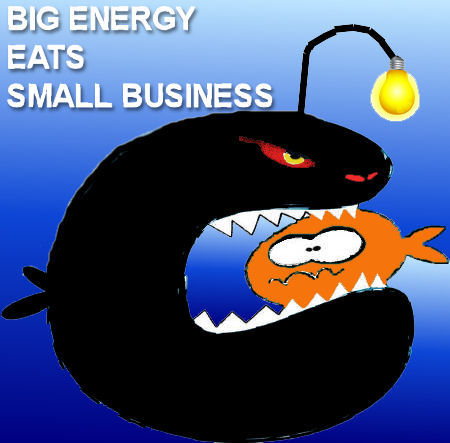

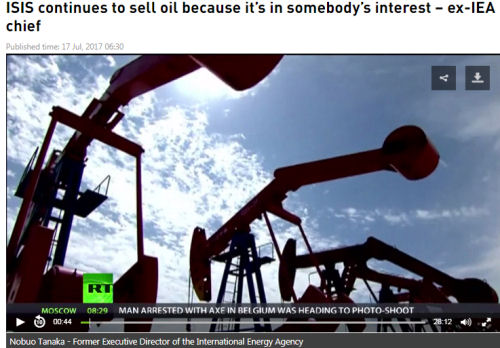
 Are the meltdowns at Fukushima Daiichi over? The answer is no. Made all the more prevalent a year out from it's initial release by the recent robotic expeditions into Reactor #2 which gave us a clearer picture on just how deadly the radiation levels are, watch Chief Engineer and nuclear expert Arnie Gundersen inform viewers on what’s going on at the Japanese nuclear meltdown site, Fukushima Daiichi. As the Japanese government and utility owner Tokyo Electric Power Company push for the quick decommissioning and dismantling of this man-made disaster, the press and scientists need to ask, “Why is the Ukrainian government waiting at least 100 years to attempt to decommission Chernobyl, while the Japanese Government and TEPCO claim that Fukushima Daiichi will be decommissioned and dismantled during the next 30 years?” Article and video from
Are the meltdowns at Fukushima Daiichi over? The answer is no. Made all the more prevalent a year out from it's initial release by the recent robotic expeditions into Reactor #2 which gave us a clearer picture on just how deadly the radiation levels are, watch Chief Engineer and nuclear expert Arnie Gundersen inform viewers on what’s going on at the Japanese nuclear meltdown site, Fukushima Daiichi. As the Japanese government and utility owner Tokyo Electric Power Company push for the quick decommissioning and dismantling of this man-made disaster, the press and scientists need to ask, “Why is the Ukrainian government waiting at least 100 years to attempt to decommission Chernobyl, while the Japanese Government and TEPCO claim that Fukushima Daiichi will be decommissioned and dismantled during the next 30 years?” Article and video from 
 Washington’s intention to overthrow Syria's legitimate and democratically-elected President Bashar al-Assad results from his refusal to back a Qatari gas pipeline project, an attorney says. Article first published by Iranian Press TV at
Washington’s intention to overthrow Syria's legitimate and democratically-elected President Bashar al-Assad results from his refusal to back a Qatari gas pipeline project, an attorney says. Article first published by Iranian Press TV at 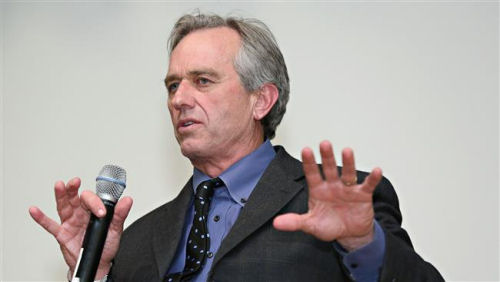
 The protection of owls might soon go to the Supreme Court and a proposed regulatory change will allow native forest wood to be burnt for electricity. It was been tabled in the House of Reps today, 27 May 2015. There is a danger that Bill Shorten's Labor Party might support the bill, despite what that says about our renewable energy scheme. Read on to find out how we might fight this.
The protection of owls might soon go to the Supreme Court and a proposed regulatory change will allow native forest wood to be burnt for electricity. It was been tabled in the House of Reps today, 27 May 2015. There is a danger that Bill Shorten's Labor Party might support the bill, despite what that says about our renewable energy scheme. Read on to find out how we might fight this.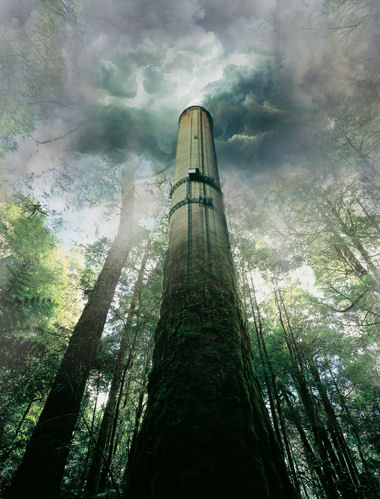
 Update 1 June 2015: See new related articles:
Update 1 June 2015: See new related articles:  We believe that some Australian universities may be sending away Russian PhD students, as under new sanctions they are not allowed to teach some of them.
We believe that some Australian universities may be sending away Russian PhD students, as under new sanctions they are not allowed to teach some of them. 
 Professor John Quiggin, of the University of Queensland criticised the Ernst and Young report on privatisation of the electricity industry.
Professor John Quiggin, of the University of Queensland criticised the Ernst and Young report on privatisation of the electricity industry. Did the U.S. and the Saudis Conspire to Push Down Oil Prices? Article by Mike Whitney, republished with permission from
Did the U.S. and the Saudis Conspire to Push Down Oil Prices? Article by Mike Whitney, republished with permission from 
 The plain truth:
The plain truth:  What does this mean?
What does this mean? Environment Minister Greg Hunt has caved to the mining industry and approved Indian mining giant Adani's monstrous Carmichael Mine, threatnening the Great Barrier Reef. The coal mine will be the biggest in Australia. It will pollute our climate with massive CO2 emissions for decades. It will mean massive and continual dredging and dumping in the Great Barrier Reef World Heritage Area and will fill the Reef with thousands of coal ships every year. Original article and petition from GetUp. Note that, if you sign, GetUp puts you on two mailing lists, however the situation is serious and their campaign may be effective.
Environment Minister Greg Hunt has caved to the mining industry and approved Indian mining giant Adani's monstrous Carmichael Mine, threatnening the Great Barrier Reef. The coal mine will be the biggest in Australia. It will pollute our climate with massive CO2 emissions for decades. It will mean massive and continual dredging and dumping in the Great Barrier Reef World Heritage Area and will fill the Reef with thousands of coal ships every year. Original article and petition from GetUp. Note that, if you sign, GetUp puts you on two mailing lists, however the situation is serious and their campaign may be effective.


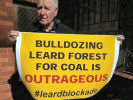
 Today, June 4, 2014 there was a Snap rally to protest at Mining giant Whitehaven Coal is sending an army of bulldozers to flatten the ancient Leard Forest located in the North West of New South Wales. The rally took place at midday at Governor Phillip Tower, 1 Farrer Place, Sydney. Dozens of protesters at Whitehaven Coal's Maules Creek Mine have been arrested. A total of 82 protesters have been arrested and removed from Leard State Forest.
Today, June 4, 2014 there was a Snap rally to protest at Mining giant Whitehaven Coal is sending an army of bulldozers to flatten the ancient Leard Forest located in the North West of New South Wales. The rally took place at midday at Governor Phillip Tower, 1 Farrer Place, Sydney. Dozens of protesters at Whitehaven Coal's Maules Creek Mine have been arrested. A total of 82 protesters have been arrested and removed from Leard State Forest.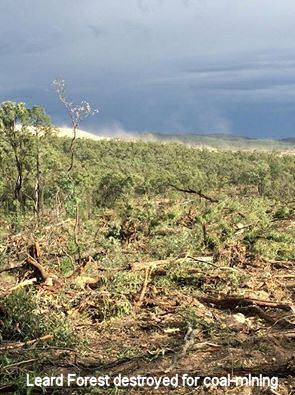

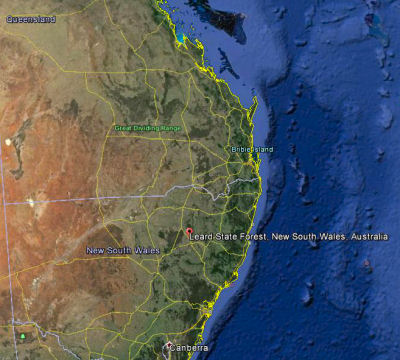
 After 10 years of negotiations, Russia's Gazprom and China's CNPC have finally signed an historic natural gas supply deal which will make them partners in post peak-oil industry for the forseeable future. Russia's relatively huge oil and gas reserves [1] have hardly been tapped due to financial depression following post USSR break-up and generally less wasteful exploration policies prior to this. Russia's future is buoyant, compared to the United States, where gas supplies are inadequate to meet the needs of domestic customers, oil peaked in the 1970s and fracking won't deliver anything like what it promised. In cooperation with China, Russia's position alongside China at the gateway to the Arctic, to the Caspian, and the Middle East put it in an remarkable new position.
After 10 years of negotiations, Russia's Gazprom and China's CNPC have finally signed an historic natural gas supply deal which will make them partners in post peak-oil industry for the forseeable future. Russia's relatively huge oil and gas reserves [1] have hardly been tapped due to financial depression following post USSR break-up and generally less wasteful exploration policies prior to this. Russia's future is buoyant, compared to the United States, where gas supplies are inadequate to meet the needs of domestic customers, oil peaked in the 1970s and fracking won't deliver anything like what it promised. In cooperation with China, Russia's position alongside China at the gateway to the Arctic, to the Caspian, and the Middle East put it in an remarkable new position.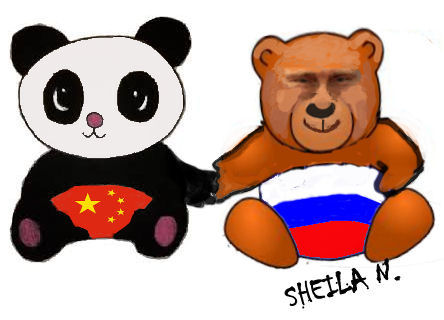 Russia, although it has known great hardship, has the benefited from this by being in touch with reality and knowing the value of good technological and scientific advice. Putin is highly intelligent and uses the media brilliantly, aiming at intellectuals who have become disgusted with the western mainstream media. He treats material in a complex and verifiable way, rather than relying on slogans and ideology. He has forged alliances all over the world with countries that the United States has alienated. Most of them have energy reserves of their own and want alternative markets.
Russia, although it has known great hardship, has the benefited from this by being in touch with reality and knowing the value of good technological and scientific advice. Putin is highly intelligent and uses the media brilliantly, aiming at intellectuals who have become disgusted with the western mainstream media. He treats material in a complex and verifiable way, rather than relying on slogans and ideology. He has forged alliances all over the world with countries that the United States has alienated. Most of them have energy reserves of their own and want alternative markets.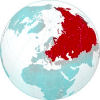
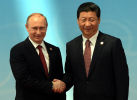 Mark Jones wrote “Battle of the Titans” when he was dying of cancer in 2005. This project animated his last days and he believed that what he had to say was of utmost importance. Many readers will find it prophetic, except in so far as he overlooks the role of Russia as an oil supplier. He does not overlook China, however, and America’s willingness to use all its remaining fuel to retain global hegemony. Here I have extracted passages which fit quite well together and give a somewhat clairvoyant view – from 2005 – of today’s frantic posturing, propagandizing and stirring up trouble in Ukraine, by the United States and Europe as they perhaps tried to influence China to side with them through their power-play in the Ukraine, then, helplessly watched Putin sign the massive gas supply contract with China.
Mark Jones wrote “Battle of the Titans” when he was dying of cancer in 2005. This project animated his last days and he believed that what he had to say was of utmost importance. Many readers will find it prophetic, except in so far as he overlooks the role of Russia as an oil supplier. He does not overlook China, however, and America’s willingness to use all its remaining fuel to retain global hegemony. Here I have extracted passages which fit quite well together and give a somewhat clairvoyant view – from 2005 – of today’s frantic posturing, propagandizing and stirring up trouble in Ukraine, by the United States and Europe as they perhaps tried to influence China to side with them through their power-play in the Ukraine, then, helplessly watched Putin sign the massive gas supply contract with China.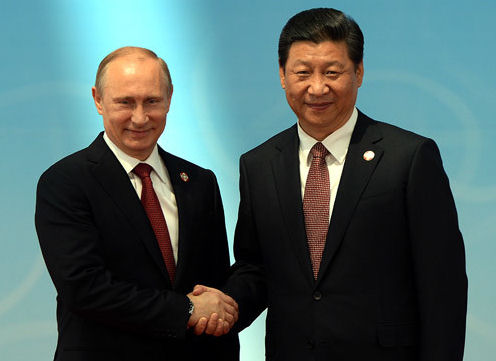

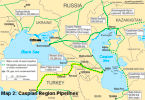
 "The geology of the region itself as well as its position as a geographical gateway to the Middle East, explains wars in Afghanistan, Iraq, Libya, Syria, confusing dialogues with Iran and, now, moves on Ukraine. I really wonder if Australian politicians actually realise what they are backing in the region." Sheila Newman (Evolutionary sociologist specialised in oil geopolitics.)
"The geology of the region itself as well as its position as a geographical gateway to the Middle East, explains wars in Afghanistan, Iraq, Libya, Syria, confusing dialogues with Iran and, now, moves on Ukraine. I really wonder if Australian politicians actually realise what they are backing in the region." Sheila Newman (Evolutionary sociologist specialised in oil geopolitics.) 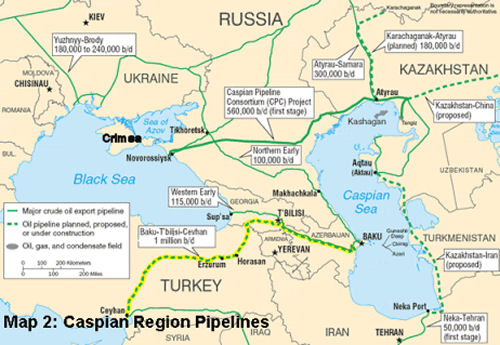

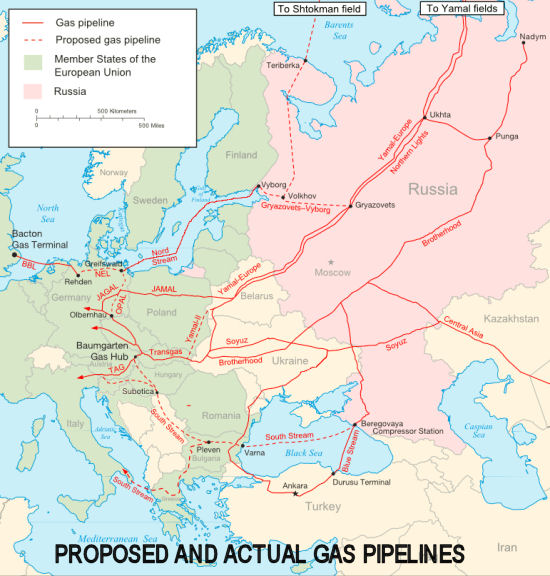
 If you thought that the affairs of the Ukraine and Crimea were too abstract for you, maybe this will make you more curious. Natalya Poklonskaya is or was a government prosecutor in the Ukraine Crimea. She has been made into an anime character in a video. She made strong statements about upholding the rule of law and is now on the illegitimate coup-installed Ukraine government's wanted list. The Ukraine government came to power as a result of a US/NATO orchestrated coup in the resource depletion wars of the 21st century. Russia is defending its oil and gas pipelines in the region. Russia had the very first and the longest petroleum product pipeline in the world in the late 19th century and British, US and European governments and commercial interests have been plotting to get more control there ever since. The region is criss-crossed with oil and gas pipelines going in many directions from Baku to as far as Germany and China. Natalya Poklonskaya rightly wants her message to be heard and dismisses this video, however it may be the way to get her message better appreciated worldwide, so we are promoting it. And we include in this article a video with Poklonskaya's real speech, with English sub-titles.
If you thought that the affairs of the Ukraine and Crimea were too abstract for you, maybe this will make you more curious. Natalya Poklonskaya is or was a government prosecutor in the Ukraine Crimea. She has been made into an anime character in a video. She made strong statements about upholding the rule of law and is now on the illegitimate coup-installed Ukraine government's wanted list. The Ukraine government came to power as a result of a US/NATO orchestrated coup in the resource depletion wars of the 21st century. Russia is defending its oil and gas pipelines in the region. Russia had the very first and the longest petroleum product pipeline in the world in the late 19th century and British, US and European governments and commercial interests have been plotting to get more control there ever since. The region is criss-crossed with oil and gas pipelines going in many directions from Baku to as far as Germany and China. Natalya Poklonskaya rightly wants her message to be heard and dismisses this video, however it may be the way to get her message better appreciated worldwide, so we are promoting it. And we include in this article a video with Poklonskaya's real speech, with English sub-titles.
Recent comments